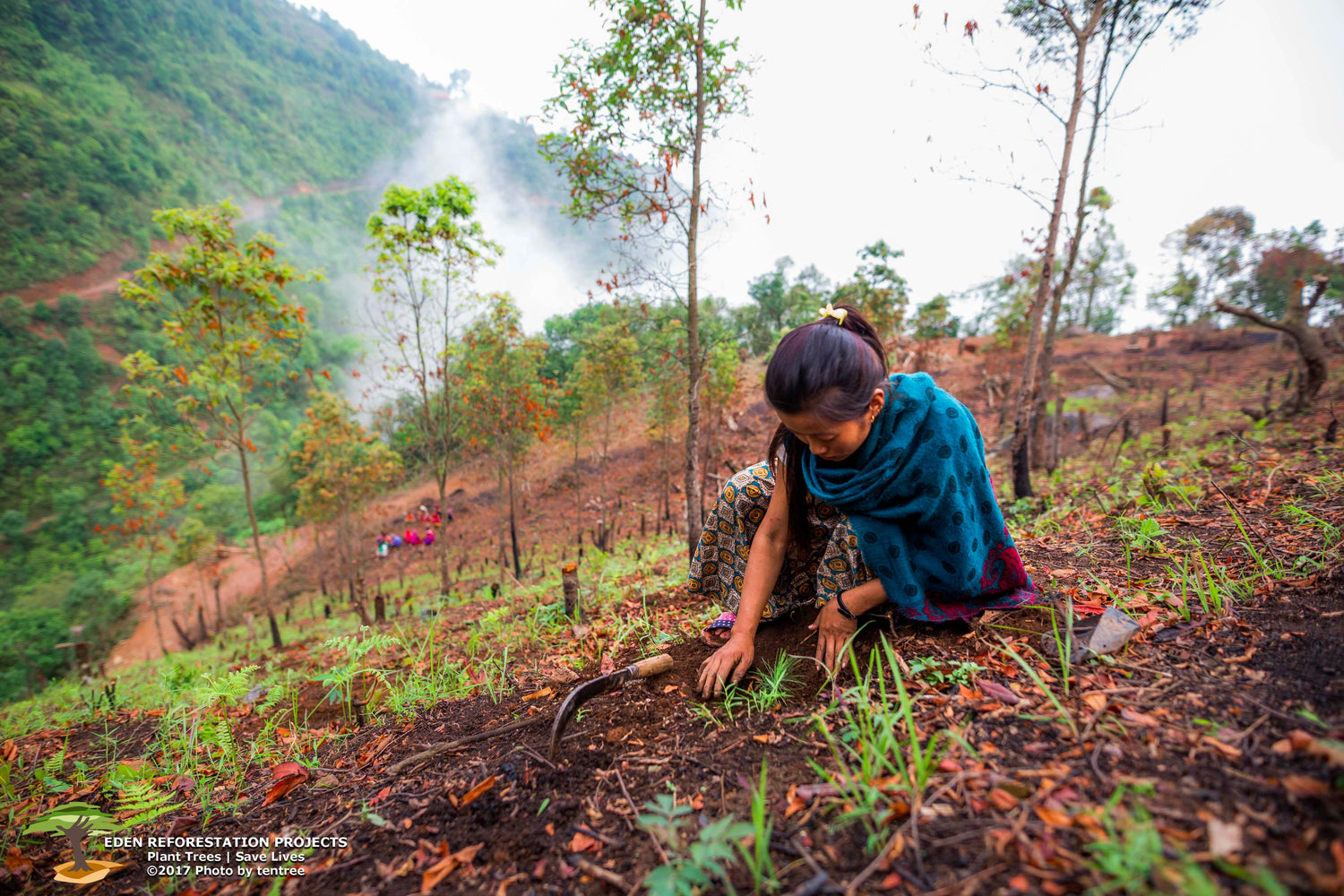In response to the escalating threat of climate change, sustainable initiatives have become imperative for safeguarding our planet's future. A pivotal movement gaining traction is tree planting, not only for its myriad environmental benefits but also as a sustainable strategy to combat climate change. Leading this charge is Eden Reforestation Projects (ERP), an organization spearheading efforts to engage local communities in planting and restoring forests in areas ravaged by deforestation. ERP's endeavors extend beyond reforestation, contributing to community empowerment and fostering a more sustainable future.
The Role of Eden Reforestation Projects
Established in 2004, Eden Reforestation Projects is a nonprofit organization committed to revitalizing natural landscapes devastated by deforestation. Their approach transcends mere tree planting; they actively involve communities grappling with extreme poverty resulting from land degradation. ERP equips local community members with tools and education, empowering them to plant, nurture, and safeguard millions of trees annually.
To date, ERP has achieved remarkable success, planting over 423 million trees and employing 14,800 individuals across ten countries. Their focus extends beyond forest restoration, encompassing economic self-sufficiency, improved health, and enhanced educational opportunities for the communities they serve. Through community-led initiatives, ERP ensures that the benefits of sustainable tree planting are realized both environmentally and socially.
The Impact of Sustainable Tree Planting
Mitigating Climate Change
Climate change stands as one of the most urgent challenges of our era, and sustainable tree planting emerges as a potent solution. Trees function as carbon sinks, absorbing carbon dioxide from the atmosphere and storing it in their biomass. A 2019 study underscores tree planting as among the most effective strategies for combatting the climate crisis through carbon sequestration. The authors estimate that an additional 0.9 billion hectares of canopy cover could store a massive 205 gigatonnes of carbon.
Eden Reforestation Projects places emphasis on mangrove restoration projects, recognizing their capacity to absorb over ten times the carbon of comparable forested areas. Mangroves not only sequester carbon but also shield coastlines from erosion and provide habitats for diverse flora and fauna. By prioritizing projects like mangrove restoration, ERP optimizes the climate-mitigating potential of their tree planting endeavors.
Preserving Biodiversity
Trees play a pivotal role in supporting biodiversity and maintaining healthy ecosystems. They offer food and shelter to a diverse array of species, from insects to mammals, with 80% of the world's terrestrial biodiversity reliant on trees for survival. However, deforestation has led to habitat loss, imperiling countless species.
Through sustainable tree planting, organizations like ERP contribute to ecosystem restoration and biodiversity preservation. As forests are rehabilitated, wildlife and plant life gain the opportunity to recover, fostering a healthier and more balanced environment. This restoration not only benefits the natural world but also supports sustainable livelihoods for local communities dependent on healthy ecosystems.
The Sustainable Approach of Eden Reforestation Projects
Eden Reforestation Projects adopts a community-led approach to sustainable tree planting, ensuring active involvement and empowerment of local communities in the restoration process. By partnering with community leaders and building relationships, ERP incorporates local knowledge and expertise into their initiatives. This approach instills a sense of ownership and long-term commitment among community members, guaranteeing project sustainability.
The Employ to Plant Methodology
Central to Eden Reforestation Projects' business model is the "Employ to Plant" methodology. This approach entails providing fair-wage jobs to community members, enabling them to transform their local environment. By offering employment opportunities, ERP injects resources into the community, enhancing livelihoods and establishing economic stability. This model not only addresses immediate community needs but also establishes a sustainable pathway out of poverty.
Through the Employ to Plant methodology, ERP aims to create a ripple effect of positive change. As communities attain economic self-sufficiency, they can invest in education, healthcare, and other essential services, breaking the cycle of poverty. Additionally, the restored ecosystems provide long-term benefits, such as improved water quality, soil fertility, and climate resilience.
The Importance of Partnerships and Support
Sustainable tree planting initiatives like Eden Reforestation Projects rely on partnerships and support from various stakeholders to maximize their impact. Corporate partners, individual donors, and the wider community all play crucial roles in funding and promoting these initiatives.
Corporate Partnerships
Eden Reforestation Projects boasts over 1,200 corporate partners, each contributing to the organization's mission of restoring forests and empowering communities. These partnerships provide the necessary resources to scale up tree planting efforts and expand into new regions. By aligning with organizations committed to sustainability, ERP can leverage their expertise and networks for a more significant impact.
Corporate partners should seek providers demonstrating transparency and accountability in their tree planting initiatives. It is crucial to ensure that the trees planted are suitable for the area and that the organization has a coherent plan for restoration beyond just planting stems. By supporting reputable organizations like ERP, companies actively contribute to the fight against climate change and promote sustainable practices within their industries.
Individual Support
Individual donors also play a vital role in supporting sustainable tree planting initiatives. By contributing to organizations like Eden Reforestation Projects, individuals can directly fund tree planting efforts and make a positive impact on the environment. Small donations can accumulate, making a significant difference and enabling sustainable tree planting projects to expand and reach more communities in need.
To get involved, individuals can donate directly to ERP or explore opportunities for planting trees themselves. Many organizations offer tree planting programs where individuals can contribute to reforestation efforts in specific areas. By participating in these programs, individuals can experience firsthand the transformative power of sustainable tree planting.
Conclusion
Sustainable tree planting initiatives, led by organizations like Eden Reforestation Projects, provide a powerful solution to combat climate change, preserve biodiversity, and empower communities. Through their community-led approach and the Employ to Plant methodology, ERP is not merely replenishing forests but also fostering economic self-sufficiency, improved health, and education opportunities for local communities.
To achieve the ambitious goal of a sustainable future, partnerships and support from both companies and individuals are crucial. By investing in sustainable tree planting initiatives, stakeholders can actively contribute to mitigating climate change, protecting biodiversity, and creating a more sustainable world for future generations. Together, we can make a significant impact and ensure a brighter future for our planet.



















Leave a comment
All comments are moderated before being published.
This site is protected by hCaptcha and the hCaptcha Privacy Policy and Terms of Service apply.